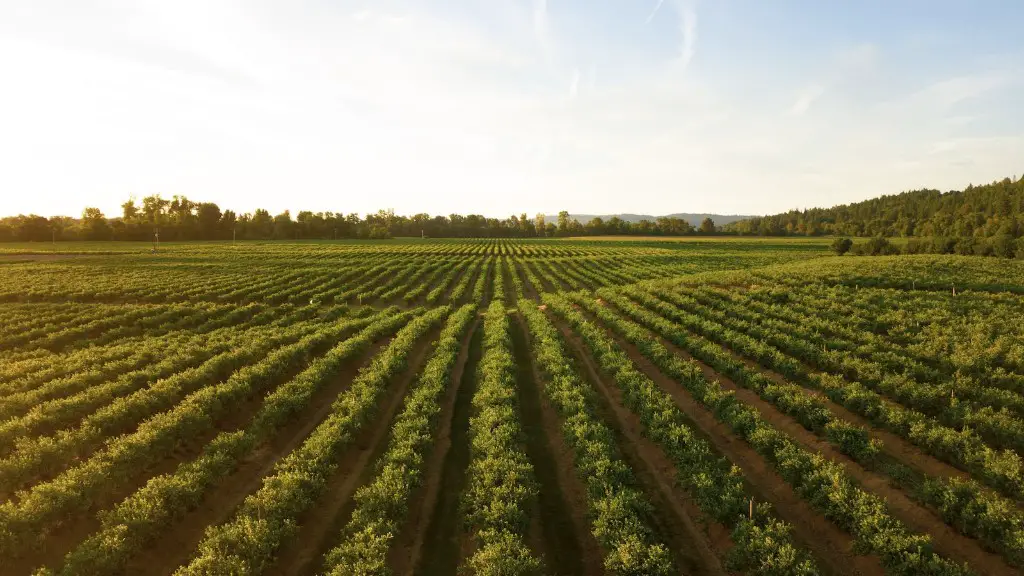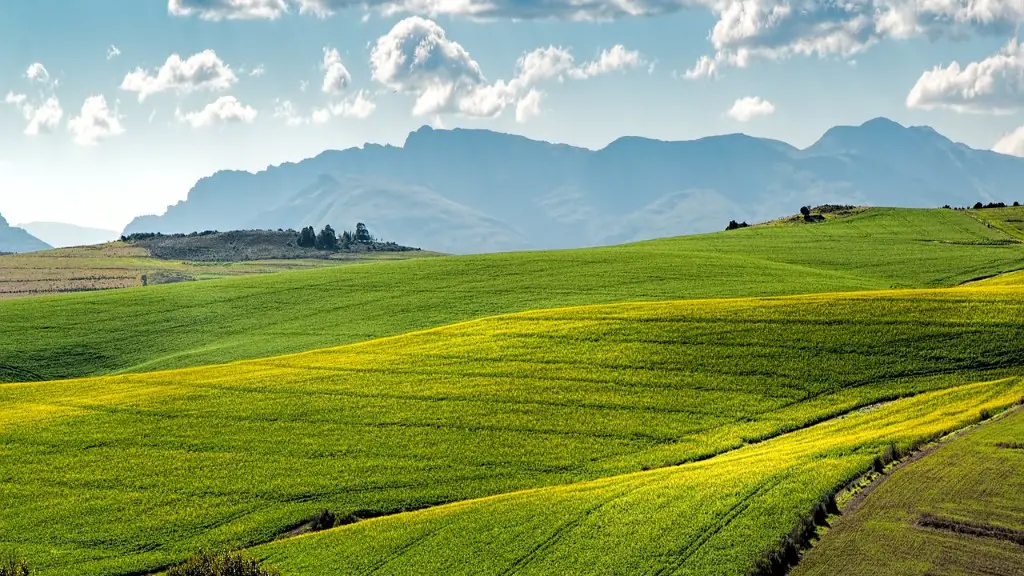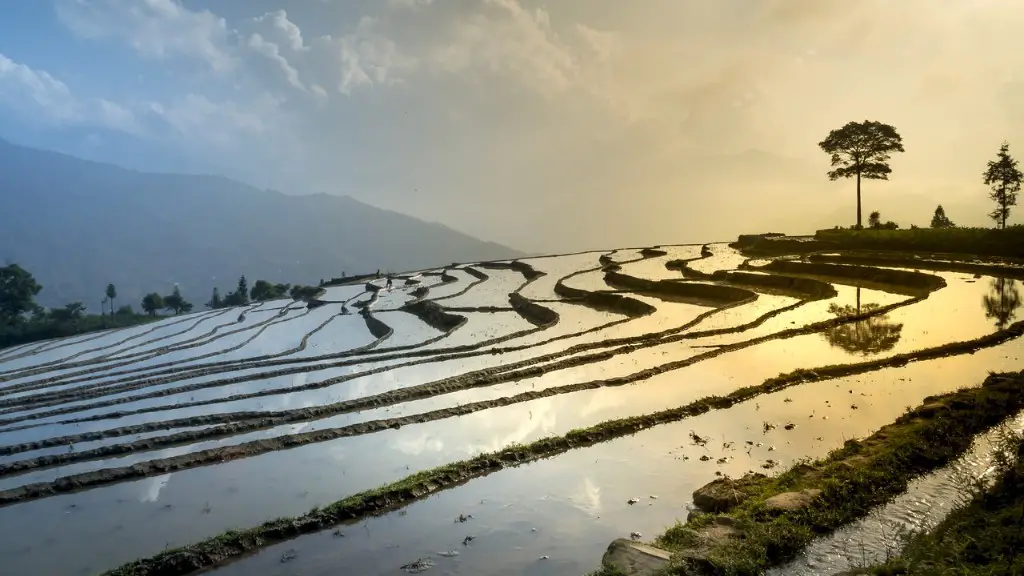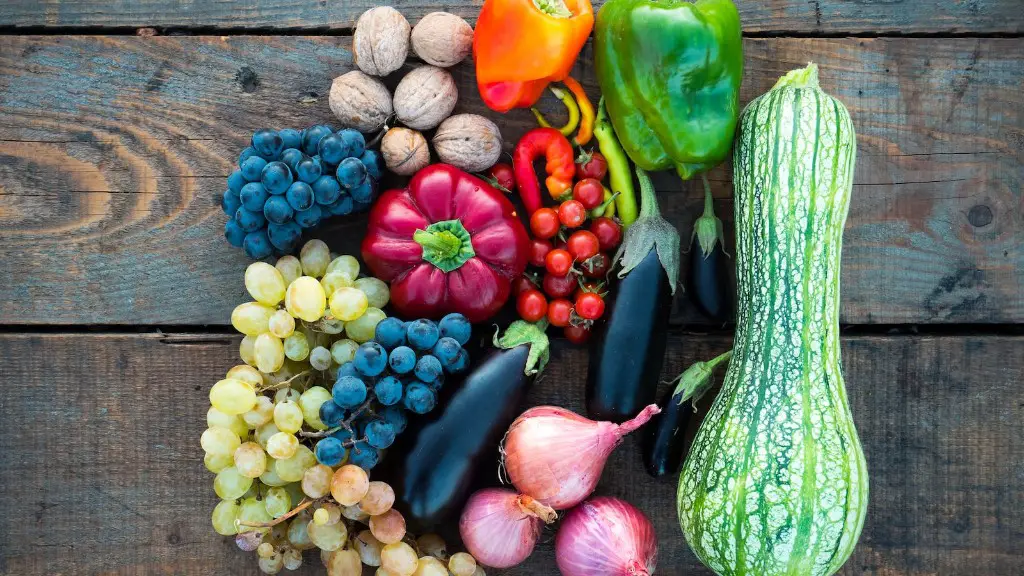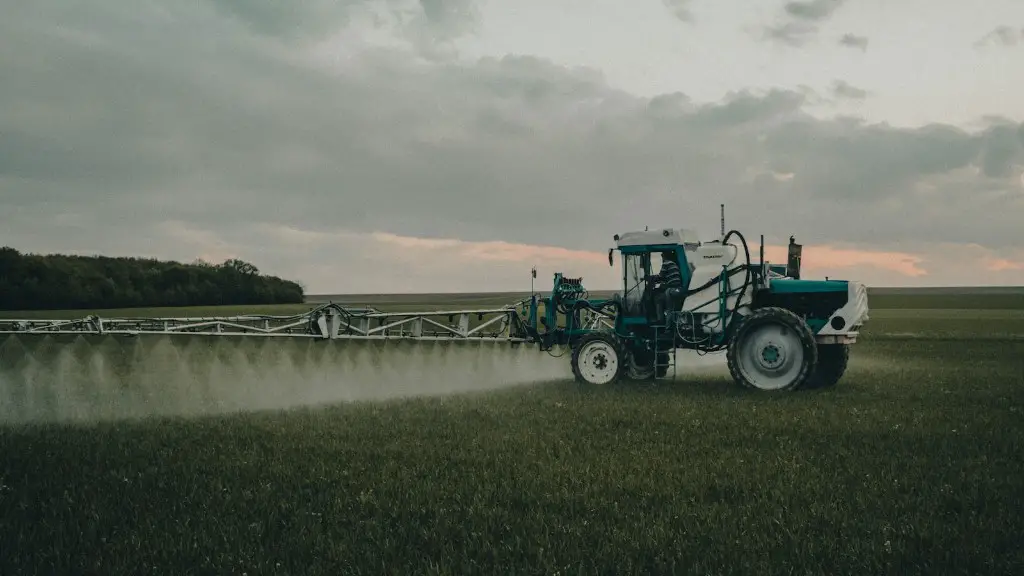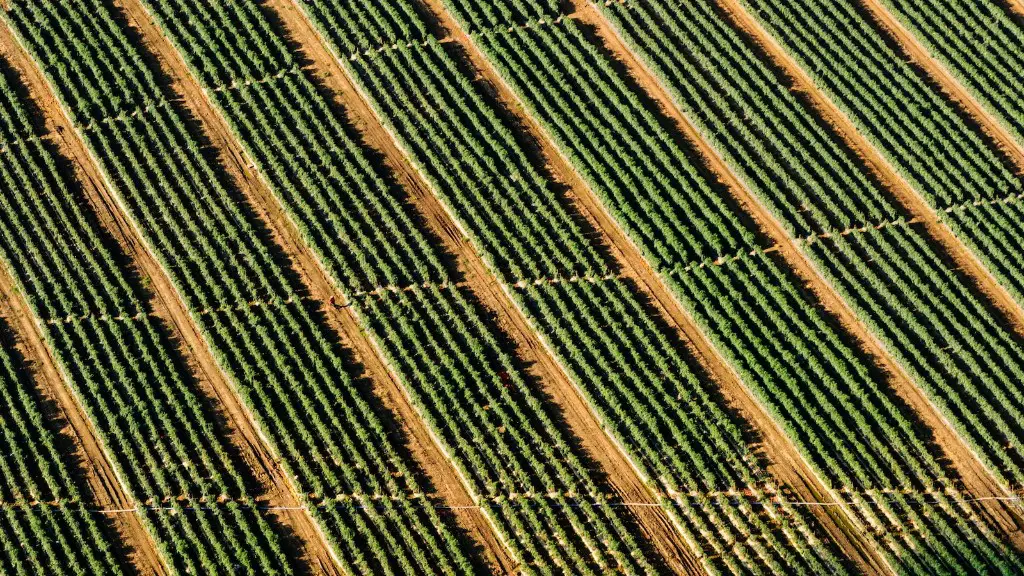The economy is a complex and ever-changing system that can have a significant impact on the agricultural sector. The agricultural sector is a critical component of the economy, providing food, fiber, and other products and services. The health of the agricultural sector can have a ripple effect on the overall economy. When the agricultural sector is booming, it can provide a significant boost to the economy. Conversely, when the agricultural sector is struggling, it can drag down the economy. The economy can also influence the costs of inputs for agriculture, such as land, labor, and capital. The availability of these inputs can make or break the profitability of agriculture.
The economy plays a big role in agriculture. When the economy is good, people have more money to spend on things like food. This means that farmers can sell their products for higher prices and make more money. When the economy is bad, people have less money to spend on things like food. This means that farmers have to sell their products for lower prices and make less money.
How does economic factors affect agriculture?
Macroeconomic developments can have significant consequences for agriculture. The key factors linking agriculture to the US and global macroeconomy are exchange rates, international trade, foreign and domestic income, employment, interest rates, and energy costs.
Exchange rates can affect agricultural exports and imports, as well as the costs of inputs used in production. International trade can also be affected by changes in exchange rates, as well as by tariffs and other barriers to trade.
Foreign and domestic income levels can affect demand for agricultural products, as well as the costs of inputs and land. Employment levels can affect the availability of labor for agriculture, as well as demand for agricultural products.
Interest rates can affect the costs of production and the availability of credit for agriculture. Energy costs can affect the costs of production, as well as the demand for agricultural products.
Agricultural economics is the study of how societies use available resources to meet the needs of people. Agriculture represents the single largest use of the earth’s resources—a major driving force in the world’s economy. Agricultural economics focuses on the economic aspects of agriculture, including the production, marketing, and consumption of agricultural products.
What are the economic factors of agricultural production
Land: Land refers to the natural resources that are used in the production of goods and services. These resources include land, water, air, minerals, and forests.
Labor: Labor refers to the human effort that is used in the production of goods and services. This includes the physical and mental effort that is used in farming, manufacturing, mining, and other activities.
Capital: Capital refers to the financial and physical resources that are used in the production of goods and services. These resources include money, machinery, buildings, and other equipment.
Entrepreneurship: Entrepreneurship refers to the ability to organize and manage the resources needed to produce goods and services. This includes the ability to start and run a business.
Government influence on agriculture is a controversial topic. Some people believe that government should play a role in regulating what farmers produce, where farms are located, and how products are transported and processed. Others believe that government involvement in agriculture creates artificial barriers to entry and stifles competition.
What are two economic factors that influence agriculture?
Farming is a complex and challenging industry that is affected by a variety of economic factors, including subsidies, commodity prices, immigration laws, and labour.
Subsidies can have a significant impact on farming, as they can either increase or decrease the cost of production. For example, if the government provides a subsidy for the purchase of agricultural equipment, this can lower the cost of production and make farming more profitable. On the other hand, if the government decreases subsidies for farmers, this can make farming less profitable and lead to fewer farmers being able to stay in business.
Commodity prices also play a major role in the economics of farming. When commodity prices are high, farmers can make a good profit by selling their crops. However, when commodity prices are low, farmers may not be able to make a profit and may even incur losses.
Immigration laws and labour can also affect farming. For example, if there are strict immigration laws that make it difficult for foreign workers to enter the country, this can make it difficult for farmers to find the labour they need to harvest their crops. Additionally, if labour costs are high, this can also make farming less profitable.
The growth in the agriculture sector is highly effective in raising incomes among the poorest compared to other sectors. Agriculture is crucial to economic growth and can account for a significant portion of a country’s GDP. In some least developed countries, agriculture can account for more than 25% of GDP. This underscores the importance of the sector in lifting people out of poverty and boosting economic growth.
How poor economic growth affect agriculture?
The poor are often the ones who are most affected by unsustainable agricultural practices. They are the ones who live on marginal lands and are forced to over-exploit vegetation in order to survive. This can lead to serious consequences for them, as they lack the assets to cushion the effects of degradation.
The Indian Economy is called an agro-economy because the agriculture sector is one of the major contributors to the country’s total GDP. Also, the sector provides jobs to more than half of the country’s population. The agricultural sector has been playing a vital role in the economic development of the country.
What are the main factors that affect agriculture
Soil is an important factor for agriculture to develop. The soil needs to have depth as well as nutrients. Climate is also an important factor that influences agriculture. Sunshine, humidity and rainfall are important factors to consider.
Some of the problems that the farmers face are poor access to reliable and timely market information, absence of supply & demand forecasting, poorly structured and inefficient supply chains, inadequate cold storage facilities and shortage of proper food processing units. These problems results in large intermediation between the farmers and the consumers.
What are the problems affecting agriculture?
It is estimated that agricultural water use accounts for 70% of the world’s total water use. Agriculture is also a major contributor to greenhouse gas (GHG) emissions, accounting for around 11% of global emissions. Expanding agricultural land can lead to deforestation, additional GHG emissions, and a loss of biodiversity.
Agricultural land is being lost at an alarming rate due to development and urbanization. This is a major problem because it reduces the amount of land available for agriculture, which could lead to future food shortages. In addition, the loss of agricultural land also results in the loss of habitat for wildlife and the loss of agricultural productivity.
The decrease in the varieties of crops and livestock produced is also a major problem. This is due to the loss of traditional knowledge and the lack of investment in research and development of new varieties. This could lead to future food shortages and the inability to adapt to changing conditions.
What are the three main problems for agriculture
There are a few challenges when it comes to the shortage and landlessness of arable farm land in the highlands. One challenge is that the land is fragmented, meaning that it is divided up into small pieces that are not easy to farm. Another challenge is that the climate is changing, making it more difficult to grow crops and rear animals.
Farmers will be facing increasing interest rates in the coming years, which will put strain on their finances. This is due to both high inflation and the Federal Reserve’s steps to address inflation. High interest rates led to the farm debt crisis in the 1980s, so farmers will need to be careful to avoid a repeat of that situation.
Why agriculture is declining?
The expenditure on food storage has stagnated, and on agricultural research has marginally declined. Overall, this means that public expenditure in agriculture has moved away from support for direct production towards income support and credit-based assistance. This is not a positive development, as it suggests that the government is not prioritizing the sector as a whole. agricultural research is essential for developing new and improved methods of production, and food storage is necessary to ensure that the food supply is stable. Without adequate support in these areas, the agricultural sector will not be able to thrive.
Farming changed all of that by creating a surplus of food. For the first time in history, some people had more food than they could eat, while others had barely enough to survive. This led to the development of deep class divisions, with a small group of wealthy landowners controlling the food supply, and the majority of people struggling to get by. This situation has led to many conflicts throughout history, as those who are hungry have often resorted to violence in order to get the food they need.
Final Words
The economy affects agriculture by influencing the demand for agricultural goods and the price of agricultural inputs. When the economy is strong, demand for agricultural products is typically high, which can lead to higher prices for farmers. However, when the economy is weak, demand for agricultural products typically declines, which can put downward pressure on farm prices. Additionally, the cost of inputs such as seeds, fertilizer, and fuel can also fluctuate with the economy, affecting farmers’ profit margins.
The economy has a big impact on agriculture. When the economy is doing well, there is more demand for agricultural products and farmers can sell their products at a higher price. When the economy is doing poorly, there is less demand for agricultural products and farmers have to sell their products at a lower price.
